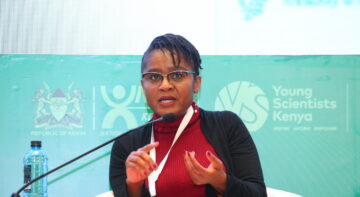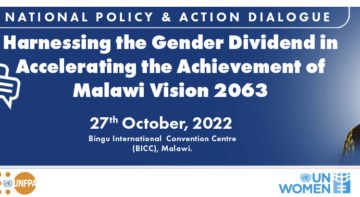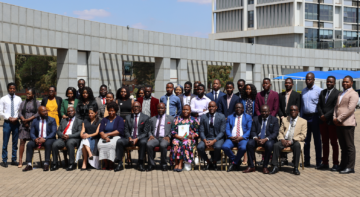News

The Malawi Ministry of Health will, on Tuesday July 19, 2016, launch the Guidelines for Evidence Use in Decision-Making at Sunbird Capital Hotel in Lilongwe. The guidelines will be used by the Ministry’s staff to enable better and increased use of research results and other information in decision-making and health care provision. Given the high disease burden amid limited resources for health care provision in the country, the guidelines will go a long way in enabling prioritisation of urgent health issues and more targeted allocation of the limited resources.
Besides the launch of the Guidelines, the Malawi Minister of Health, who will preside over the launch, will also award certificates to 24 Ministry of Health staff who have been trained in better use of research evidence in their work.
The development of the Guidelines and the training of Malawi Ministry’s staff in better use of research evidence in decision-making are the outcomes of a three-year programme that the Ministry has been implementing together with the African Institute for Development Policy (AFIDEP) and the College of Medicine at the University of Malawi.
The programme, dubbed Strengthening Capacity for Use of Research Evidence in Health Policy (SECURE Health), has been implemented in Malawi since January 2014 and is funded by the UK government’s Department for International Development (DFID).
The Ministry’s leadership in the implementation of this programme with AFIDEP and College of Medicine demonstrates its commitment to improving decision-making, resource allocation, and provision of health care in the country. Indeed, better use of research findings and other information is critical for the realisation of the government’s goals and objectives set out in the Health Sector Strategic Plan (HSSP), health-related Sustainable Development Goals (SDGs), the UNAIDS 90-90-90 HIV and AIDS targets, and other health sector strategic plans.
The Guidelines for Evidence Use in Decision-Making, to be launched on Tuesday, outline the steps involved in policymaking, and provide guidance and tips on how to find research evidence, assess its quality, synthesize and prepare policy briefs based on the evidence, and apply the evidence in decision-making.
The Guidelines are a response to the results of a study on the Status of Research Evidence Use in the Health Sector in Malawi, conducted by the SECURE Health programme in 2014. The study showed capacity weaknesses among the Ministry’s staff in knowing where and how to find research evidence, assessing the quality of the research evidence to ensure that only quality research is used to inform decisions, synthesising and applying the evidence in decision-making.
The guidelines will complement other policymaking frameworks in Malawi with emphasis on how to use evidence to inform policy and decision-making processes. They will enhance the skills of policymakers and practitioners in finding and using research evidence, and ultimately contribute to better decision-making and health care provision.
The leadership of the country has been advocating for increased use of evidence in order to better tackle the many development challenges that the country is facing. For instance, on 2 May 2016, His Excellency Prof. Arthur Peter Mutharika, the president of the Republic of Malawi, encouraged cabinet secretaries from various African countries including Malawi to ensure that they formulate policies, which are evidence based, when he said:
“It is your duty to ensure that appropriate procedures are developed to guide the policy-making process. If Africa is to move forward, we cannot tolerate haphazard policy development. We cannot accept policies that do not listen to the people, to the procedures, and to evidence.”
He was speaking to African cabinet secretaries during the third Africa cabinet secretaries’ round-table workshop in Lilongwe, Malawi.
Related Posts




